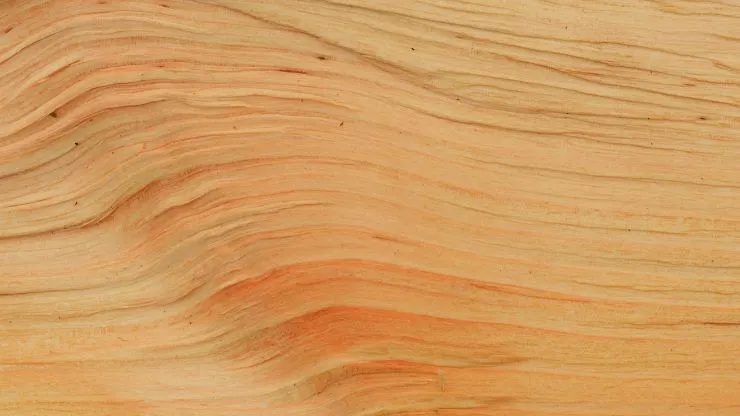What Is Alder?
Alder belongs to the Alnus genus, from the birch family of trees. The variety most often used in guitar-making is Alnus rubra, also known as red alder. However, black alder, or Alnus glutinosa, is also used on a smaller scale. Alder wood is softer than most other popular guitar body woods, such as mahogany or ash. But what it lacks in hardness, it makes up for with a lighter weight and a famously well-rounded sound.
What Are the Pros and Cons of Alder Tonewood?
Alder guitars have plenty of pros, the most important of which are:
| Pros | Cons |
|---|---|
| Well-balanced tone, with strong mid and low performance | Less warm sound than some tonewoods, such as mahogany |
| Bright sound | Less strong, making it more prone to denting |
| Good resonance and sustain | Not the most striking appearance |
| Relatively cheap | |
| Sustainable wood | |
| Stable, with good resistance to warping | |
| Lighter than other comparable tonewoods | |
| Easy to work with |
Why Is Alder Popular?
Many luthiers regard alder as one of the most balanced guitar woods around. Its full-bodied sound offers a blend of excellent mids, solid lows, and bright highs. Alder also has strong resonance, good sustain and a punchy attack. It’s relatively light, making it an attractive option for solid body guitars, while its closed pores and softer nature make it a dream to work with. Alder is an excellent choice for solid-body electric guitars and basses. However, its lower strength makes it a no-go for acoustic instruments.
Who Are Alder Guitars Suited To?
Alder is popular among various music genres, including pop, rock, blues, jazz, and metal. This is mainly due to the wood’s relationship with Fender, one of the guitar world’s most iconic brands. In fact, some of the greatest guitar gods of all time have rocked alder Fenders, including Jimi Hendrix, Eric Clapton, Jeff Beck, and Ritchie Blackmore. Alder isn’t quite so commonly seen in the heaviest depths of metal, where many guitarists favour mahogany for its darker tone and unbeatable sustain. However, a host of shredders have opted for alder over the years. Notable users include KK Downing and Glen Tipton of Judas Priest, Dave Murray and Adrian Smith of Iron Maiden, Eddie Van Halen, and Yngwie Malmsteen.
Are Alder Guitars Expensive?
By their own admission, Fender probably started using alder in the 1950s because it was readily available and cheaper than swamp ash. Nowadays, despite being a trendy choice, alder continues to be cheaper than tonewoods such as mahogany and ash, making it an excellent option for guitar buyers with a limited budget.
How Is Alder Used in Guitars?
Despite being a very popular and stable guitar wood, alder is pretty limited in uses. It isn’t strong or hard enough for fretboards or necks. Similarly, it makes a poor choice for acoustic guitars. This means that alder operates chiefly as an option for solid electric guitar bodies. Its manageable weight and balanced sound also make it perfect for bass guitars.
Is Alder Sustainable?
Alder is abundant in dense forests across North America, Europe, North Africa, and Russia. Because of its large population, loggers can harvest it on a more local level, giving it a negative carbon footprint. And thanks to its fast growth rate, it can be quickly replanted after harvesting. Alder is simply one of the most sustainable tonewoods around!
How Durable Are Alder Guitars?
Alder is a stable wood that is resistant to warping, so you shouldn’t have many problems with an alder guitar. However, it’s important to note that it is softer than most other tonewoods. Unfortunately, it is a little easier to get dints and scratches.
Are Alder Guitars Easy to Maintain?
Thanks to alder’s stability, you don’t need to do any maintenance that you wouldn’t need to do with any other guitar. Keep your axe at a stable temperature and humidity, keep it in a case when not in use, and regularly clean it with a finish-appropriate polish or cloth.
Are Alder Guitars Good?
Whether or not alder is good for you will mostly depend on your personal preferences and the style of music you want to play. If you’re looking for a well-rounded, bright sound with no obvious tonal gaps, then alder could be the one. However, if you want a deeper, darker tone, or one that veers more towards a stellar low or high-end performance, then maybe dodge the alder and look elsewhere.
Alder Alternatives
As alder is a well-rounded guitar wood, there are plenty of alternatives to discuss! If you want a warmer, darker tone, or more sustain, then definitely consider mahogany if your budget allows. Basswood is a great choice for a guitar with more excellent low-end performance. Or, if you want more emphasis on the treble, an instrument incorporating maple could be a contender for you.
Finding Your Perfect Alder Guitar
So, you’ve decided you want an alder guitar? A fine choice! Head to our Finder tool, enter your search filters, and start the hunt for your perfect alder guitar.

